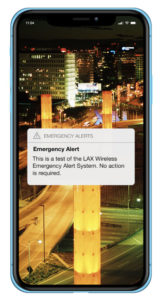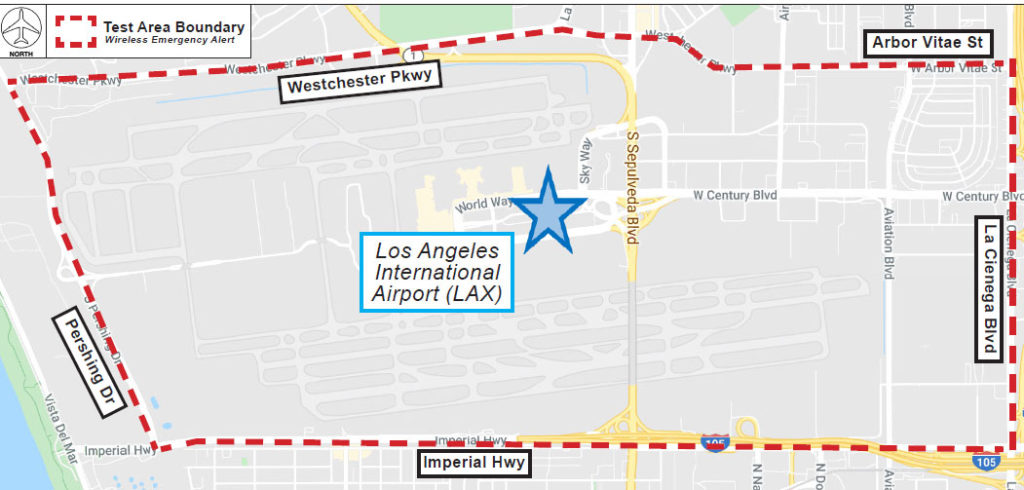Los Angeles International Airport (LAX) is to hold a wireless emergency alert (WEA) test on January 15, it has announced.
Operator Los Angeles World Airports (LAWA) is among the government agencies across the USA with the Federal Communications Commission (FCC) authority to utilize the WEA system, in which emergency text messages and an alert tone are pushed to compatible mobile devices – such as cell phones – within a pre-defined geographic area. The purpose of these messages is to alert people about imminent threats to safety in their area. This is the same system utilized for presidential alerts, amber (child abduction) alerts and extreme weather warnings issued by the USA’s National Weather Service.
The LAX test of the emergency messaging system will take place at 10:00am on January 15 and will be sent to mobile devices within the area bounded by La Cienega Boulevard to the east, Imperial Highway to the south, Pershing Drive to the west and Westchester Parkway/Arbor Vitae Street to the north. It is possible that some devices outside of this immediate area may receive the alert as well, as the signals are sent by cell phone towers in the area.
The LAX test message will read: “This is a test of the LAX Wireless Emergency Alert system. No action is required.”
Justin Pierce, director for emergency management, LAWA, explained, “Safety is the number one priority at Los Angeles World Airports, and the wireless emergency alerts system provides us with another way to send critical information during an emergency directly to airport guests.

“While we hope that we will never need to use this system, conducting a full-scale test of the system will ensure that we have the capability to reach tens of thousands of airport employees and passengers with potentially life-saving information.”
LAX will join a handful of other US airports that have tested the WEA alert system, including Dallas Love Field and Denver International Airport. Since its launch in 2012, the WEA system has been used more than 49,000 times nationwide to warn the public about dangerous weather, missing children and other critical situations.
In an actual emergency, the WEA messages would advise recipients of actions they should take to save lives and/or property. If an unforeseen emergency or hazardous situation occurs on the morning of January 15, the test may be postponed until a later date.


